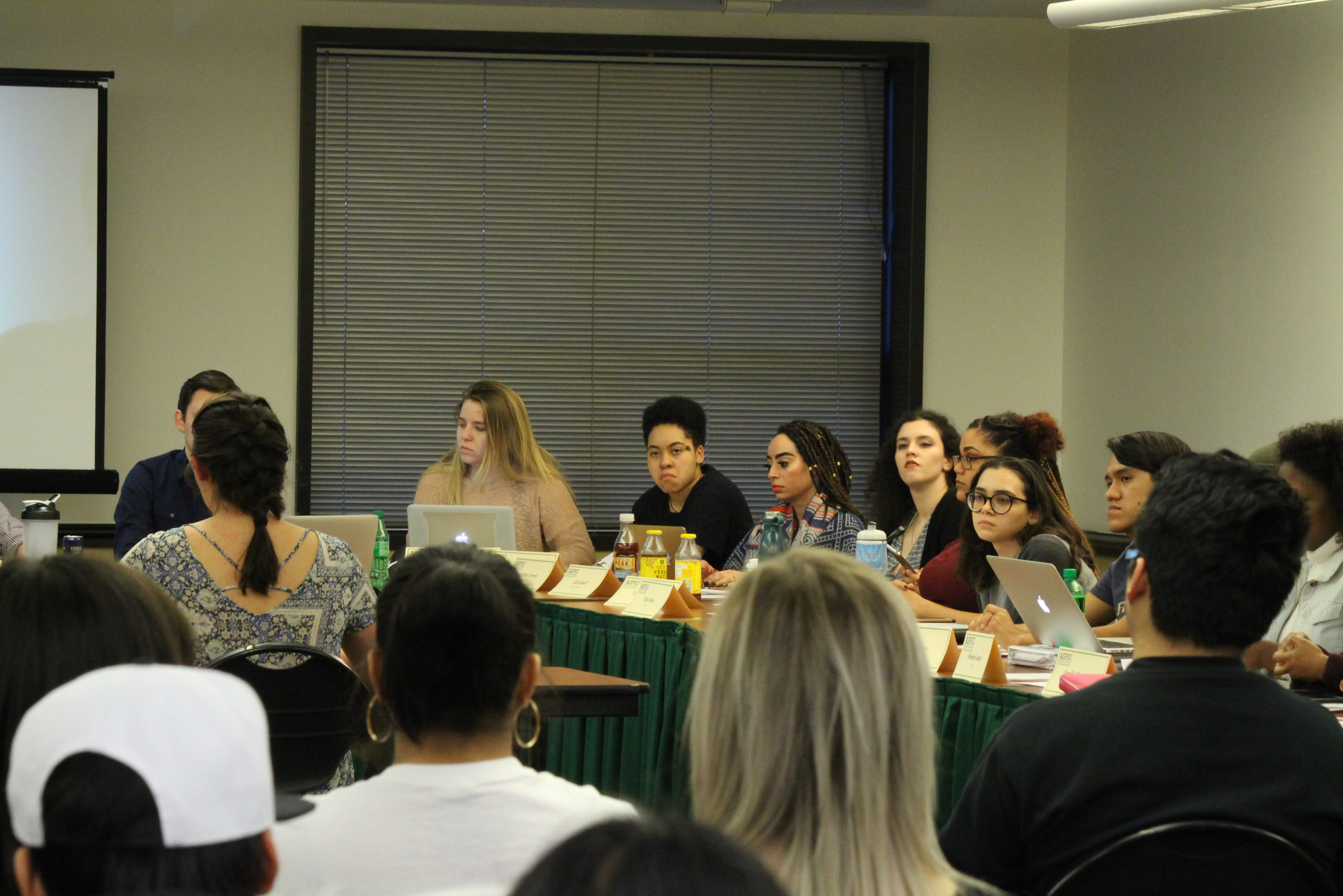The Portland City Council unanimously approved a new ordinance that protects tenants from the cost of devastating rent increases or no-cause evictions on Feb. 2, 2017. Ordinance 188219 requires landlords who issue no-cause eviction notices or increase rent by 10 percent or more in a 12-month period, including notices pending prior to Feb. 2, to pay relocation fees for tenants ranging from $2900 to $4500.
With the help of attorneys at Student Legal Services, many PSU students have seen their landlords rescind no-cause eviction notices or rent increases.
While the ordinance has also benefited other Portland tenants, the apartment lobbying entity Multifamily NW is suing the city. Portland continues to debate with critics over the state-wide ban on rent control and what long-term solutions can fix the city’s housing crisis.
Lawyer John DiLorenzo with Multifamily NW represents landlords Phillip Owen and Michael Feves, a PSU adjunct geology professor. According to a Feb. 9, 2017 Portland Tribune article, DiLorenzo filed suit because he believes the ordinance violates Oregon’s ban on rent control and essentially eliminates no-cause evictions, which both Owen and Feves have used to evict problem tenants.
“We view the current circumstances as resulting from an imbalance between supply and demand,” DiLorenzo said. “Not enough locals possess the skills for jobs newcomers are taking.” Multifamily NW’s solution to the housing crisis is to “build more, build up, and build more dense” to avoid displacing locals by the influx of professionals moving to the city.
City Commissioner Chloe Eudaly, who presented the ordinance, disagrees with this position. “It will take decades to build our way out of [the housing crisis],” Eudaly said in her Feb. 2 city council speech. Eudaly is a former bookstore owner and long-term renter in Portland. She ran her 2016 campaign on affordable housing issues. “And that’s only if developers are willing to start building for existing demand,” Eudaly said.
Eudaly discussed how developers are primarily building luxury housing, which doesn’t help disabled, low-income, and often people of color, whom she said suffer the brunt of the housing crisis. As for landlords foregoing for-cause evictions for problem tenants, Eudaly said, “The law is weighted in the landlord’s favor.” She added, “We don’t call our eviction court an eviction mill for nothing.”
Eudaly’s Deputy Chief of Staff, David Austin, told the Vanguard the ordinance is not a long-term solution, but “a temporary measure so the state legislature can make some decisions.” Austin referred to Tina Kotek, Speaker of the Oregon House of Representatives, who publicly advocates an overturn of the state ban on rent control.
“Do we want to price out everybody and then people who work in the service industry and people working other blue collar jobs can’t afford to live in this city?” Austin asked. “Commissioner Eudaly isn’t interested in having her city turn into that. Greed isn’t a good thing.”
DiLorenzo said he believes rent control would make the housing crisis worse. “If [the City of Portland] enacts rent control,” DiLorenzo said, “there will be even fewer market rate units. The market will always win.”
As a counter offer to rent control, Multifamily NW proposed a $25 million rental assistance bill in December which Kotek immediately opposed.
Dr. Ethan Seltzer, a professor at PSU’s Toulan School of Urban Studies and Planning, said most economists agree rent control would lead to less housing production than the city needs. “On the other hand,” Seltzer said, “building up is not the only way we can build more, but politically building up is actually easier.” Seltzer said policymakers should decide what they want and don’t want for the city, “then focus in on whether the tools and tactics, like rent control or building up, makes what we as a community want easier to attain.”
The big question is, as Austin asked, “What kind of city do you want to live in?”
DiLorenzo’s lawsuit is set to go to state court, where the definitions of rent control may be debated. While humanitarian and economic perspectives continue to argue their points, the ordinance still stands in Portland, and it’s up to tenants to enforce it.
PSU students have the backup they need to appeal no-cause evictions and large rental increases. Student Legal Services reported that some landlords seem to have responded better to letters stating tenant’s rights under the ordinance written by SLS attorneys than those by students themselves. SLS recommends students contact its office as soon as they receive a notice.







I better raise rents now before they take away that free market right too.
I am so thankful for the ordinance. The new property owners at my apartments were going to raise my rent 52% more and issued no-cause evictions for 6 months from now. They rescinded this and now I don’t have to worry about having to move out of my apartment (which is not event worth the $1000 a month they wanted to increase it to). High rent costs are difficult for low-income families, & that is what people & landloards need to recognize!
High rent is difficult for ALL renters. We’re nowhere close to low-income, and we’re having a hard time finding an affordable place to live. We’d love to move, but there aren’t enough Ph.D level tech jobs in the Midwest, so we’re stuck for now. But, we’re definitely looking for new jobs, and as soon as we find work, we’re out of here. Portland sucks.